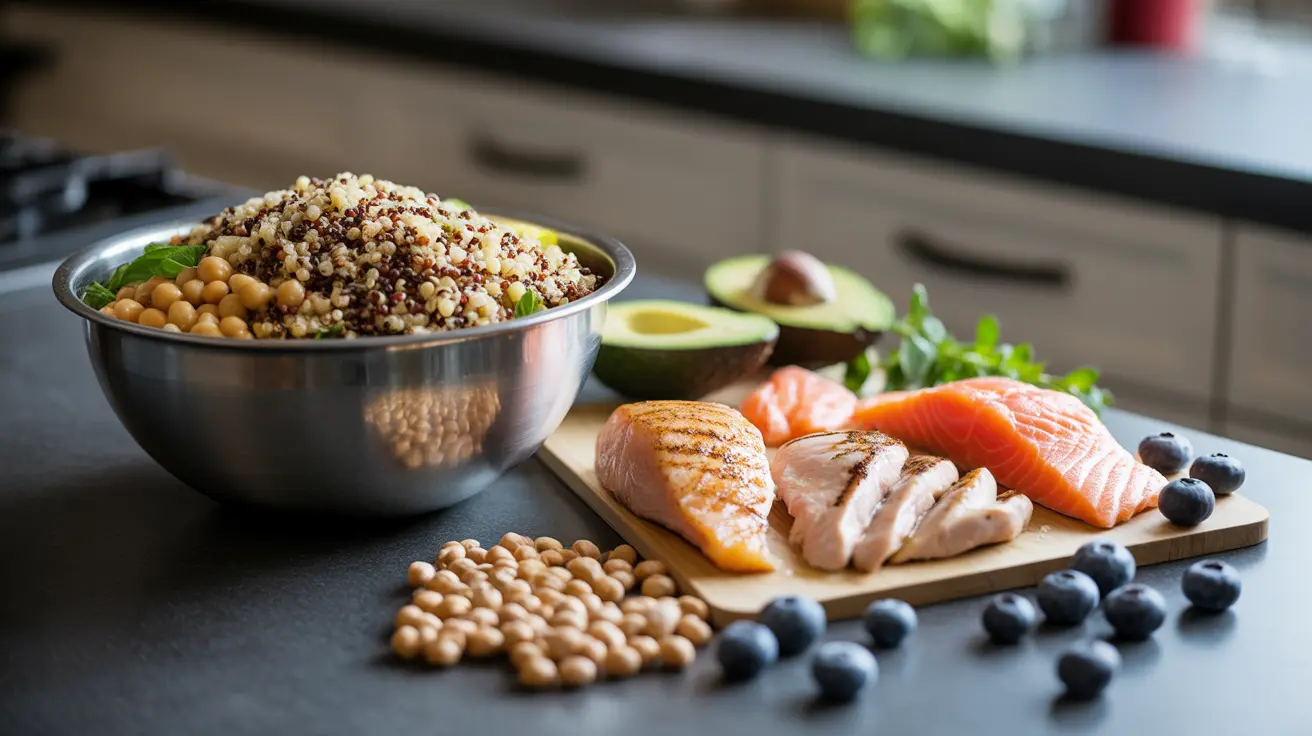Understanding your daily protein needs is crucial for maintaining optimal health, supporting muscle function, and ensuring proper body composition. Whether you're an athlete, pregnant, or simply trying to maintain good health, knowing how much protein to consume can make a significant difference in achieving your wellness goals.
In this comprehensive guide, we'll explore the specific protein requirements for different individuals and lifestyle factors that influence these needs. We'll also address common concerns about protein intake and help you make informed decisions about your nutrition.
Basic Protein Requirements by Body Weight
The general recommendation for protein intake varies based on several factors, with body weight being a primary consideration. For most healthy adults:
- 0.8 grams of protein per kilogram of body weight (or 0.36 grams per pound) is the recommended dietary allowance (RDA)
- For a 150-pound person, this translates to about 54 grams of protein daily
- For a 180-pound person, approximately 65 grams of protein daily
Factors That Influence Protein Needs
Physical Activity Level
Active individuals typically require more protein than sedentary people:
- Recreational exercisers: 1.1-1.4g/kg of body weight
- Endurance athletes: 1.2-1.6g/kg of body weight
- Strength-training athletes: 1.4-2.0g/kg of body weight
Age and Life Stage
Protein requirements can vary significantly based on age and life circumstances:
- Older adults (65+): 1.0-1.2g/kg of body weight
- Pregnant women: Additional 25 grams per day
- Breastfeeding women: Additional 20 grams per day
Health Implications of Protein Intake
Signs of Inadequate Protein
Insufficient protein intake can lead to various health issues:
- Muscle weakness and loss
- Delayed wound healing
- Compromised immune function
- Fatigue and weakness
- Hair, skin, and nail problems
Risks of Excessive Protein
While protein is essential, too much can have adverse effects:
- Kidney strain in susceptible individuals
- Digestive issues
- Potential calcium loss
- Dehydration
- Weight gain from excess calories
Plant vs. Animal Protein Sources
Both plant and animal proteins can effectively meet daily requirements when properly planned:
Animal Protein Sources
- Lean meats
- Fish
- Eggs
- Dairy products
Plant Protein Sources
- Legumes
- Nuts and seeds
- Whole grains
- Soy products
Frequently Asked Questions
What are the recommended daily grams of protein for adults based on body weight?
Adults should consume 0.8 grams of protein per kilogram of body weight daily as a baseline. For example, a 70kg (154-pound) person needs about 56 grams of protein per day. However, this is a minimum recommendation, and individual needs may vary.
How does activity level affect my daily protein intake needs?
Active individuals require more protein than sedentary people. Athletes and regular exercisers may need 1.2-2.0 grams per kilogram of body weight, depending on their training intensity and goals. This increased need helps with muscle repair and recovery.
What are the health risks of consuming too much or too little protein daily?
Too little protein can lead to muscle loss, weakened immune system, and poor wound healing. Excessive protein intake may stress the kidneys, cause digestive issues, and lead to dehydration. Most healthy individuals should aim to stay within their recommended range based on activity level and health status.
How does being pregnant or breastfeeding change my protein needs compared to a non-pregnant woman?
Pregnant women need an additional 25 grams of protein daily to support fetal growth and development. Breastfeeding women require an extra 20 grams daily to support milk production. These increased needs are essential for both maternal and infant health.
Are plant-based protein sources as effective as animal-based sources for meeting daily protein needs?
Yes, plant-based proteins can effectively meet daily requirements when properly planned. While some plant proteins may not contain all essential amino acids individually, combining different plant protein sources throughout the day can provide complete protein nutrition. The key is maintaining variety in your plant-based protein sources.




